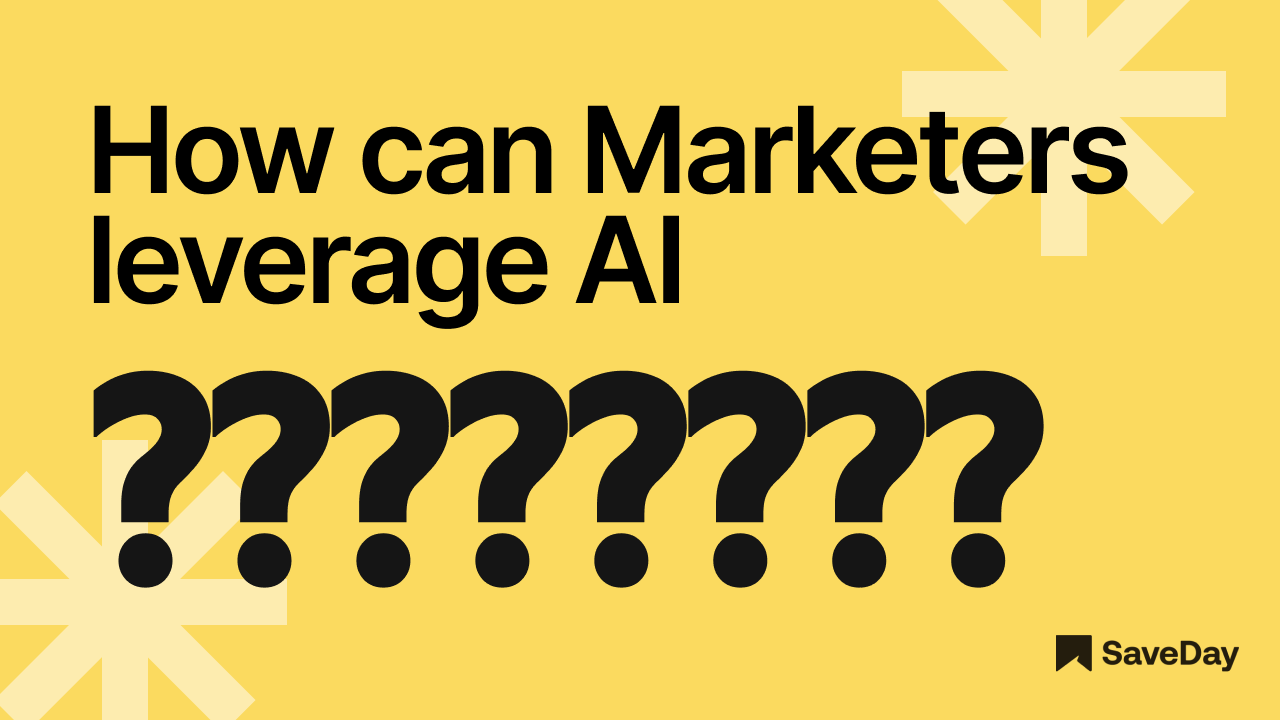
1. What is AI?
At its core, AI involves algorithms and models designed to mimic human decision-making and problem-solving abilities. By processing and analyzing data at scale, AI can offer insights that would be nearly impossible for humans to obtain manually. The versatility of AI allows it to function in various applications, from automating routine tasks to providing in-depth analytics and insights.
2. Benefits of AI in Marketing
Enhanced efficiency
AI automates repetitive tasks, allowing marketers to focus on strategic initiatives that require creativity and critical thinking.
Data-Driven Insights
Through sophisticated data analysis, AI provides actionable insights that help marketers make informed decisions about campaigns, audience segments, and product offerings.
Personalization
AI can analyze customer data to deliver tailored experiences, helping brands connect with their audiences on a personal level. This personalization can significantly enhance customer engagement and loyalty.
Cost Savings
By optimizing marketing expenditures and improving operational efficiencies, AI can lead to significant cost savings for businesses.
Scalability
AI solutions can scale to meet the needs of growing businesses, handling larger datasets and more complex tasks without a significant increase in resources.
Predictive Capabilities
AI’s predictive analytics can forecast future outcomes based on current and historical data, allowing marketers to anticipate customer behaviors and market trends.
3. How to Use AI in Marketing
Personalization at Scale
One of the pivotal advantages of AI is its ability to personalize marketing efforts on a large scale. AI algorithms can analyze customer data from various sources, including browsing behavior, purchase history, and social media interactions. This data-driven approach allows marketers to create custom-tailored recommendations and content that resonate with individual customers, increasing engagement and conversion rates.
Predictive Analytics
Predictive analytics powered by AI can provide invaluable insights into customer behavior and preferences. By examining historical data, useful algorithms can forecast future trends and actions. Marketers can use these insights to make informed decisions about product launches, targeted promotions, and resource allocation, helping to ensure more effective and successful campaigns.
Chatbots and Customer Service Automation
AI-driven chatbots are revolutionizing customer service by providing instant, 24/7 assistance. These virtual assistants can engage with customers, answer questions, resolve issues, and even provide personalized product recommendations based on customer data. Implementing chatbots not only enhances customer satisfaction by offering immediate support but also frees up human agents to focus on more complex inquiries.
Content Creation and Curation
AI can greatly assist marketers in generating and curating content. AI-driven tools can analyze trending topics and popular content formats, providing insights that guide content creation. Additionally, AI can streamline the writing process through natural language generation, producing high-quality articles, social media posts, and marketing copy more quickly and cost-effectively.
Social Media Monitoring and Analysis
Social media is a goldmine of customer insights, and AI can help marketers make sense of this massive data. AI tools can monitor brand mentions, assess sentiment, and track engagement metrics across various platforms. By understanding how customers perceive their brand, marketers can adjust their strategies accordingly, improve their overall social media presence, and enhance customer interactions.
Ad Targeting and Optimization
AI is invaluable in enhancing advertising strategies. AI algorithms can optimize ad targeting by analyzing customer data to identify the most relevant audiences for specific ad campaigns. This means that marketers can reach the right people with the right messages at the right time, greatly increasing the efficiency and effectiveness of their advertising efforts.
4. Suggested AI Tools for Marketers
SaveDay
SaveDay is a cutting-edge digital bookmark manager designed to enhance the productivity of marketers navigating the vast expanse of online resources. In an age where information overload can hinder efficiency, SaveDay provides a streamlined solution for organizing and accessing valuable content, allowing marketers to focus more on strategy and creativity rather than losing time searching for saved links.
Equipped with smart tagging and categorization features, SaveDay enables users to easily sort and retrieve bookmarks related to campaigns, audience research, or industry trends with just a few clicks. By centralizing their online resources, marketers can quickly gather insights and inspiration, fostering collaboration and innovation within their teams. Additionally, SaveDay’s AI-powered recommendations suggest relevant articles and resources based on users' interests, ensuring that marketers stay updated with the latest trends and best practices in the industry.
By integrating SaveDay into their daily workflow, marketers can significantly boost their productivity, streamline their research processes, and maximize their time spent on high-impact activities that drive brand success.
HubSpot
HubSpot employs AI for various marketing functions, including lead scoring, email automation, and content optimization. It provides an all-in-one platform that helps marketers streamline operations.
Canva
While primarily a design tool, Canva uses AI features to generate content suggestions and assist in creating visually appealing marketing materials quickly and easily.
Marketo
Marketo utilizes AI to optimize marketing automation. It helps with lead management, email marketing, and analytics, ensuring that your campaigns are effective and data-driven.
BuzzSumo
This tool helps marketers identify trending topics and content ideas using AI. By analyzing what content performs well on social media and search engines, BuzzSumo provides valuable insights for content creation.
Google Analytics
Google Analytics now includes AI features like predictive insights, which help marketers understand potential user actions and optimize their strategies based on data trends.
ChatGPT
This AI language model can assist in generating content ideas, writing blog posts, or drafting marketing emails, making content creation faster and more efficient.
Hootsuite
Hootsuite uses AI for social media management, offering tools for scheduling posts, monitoring brand mentions, and analyzing performance metrics to enhance social media strategies.
Using AI in marketing is no longer a futuristic concept but a necessity for organizations aiming to streamline their operations and enhance customer experiences. By incorporating AI-powered tools like SaveDay and others into your marketing strategy, you can gain valuable insights, improve efficiency, and ultimately drive success in your campaigns. Embrace the power of AI, and watch your marketing efforts reach new heights.





